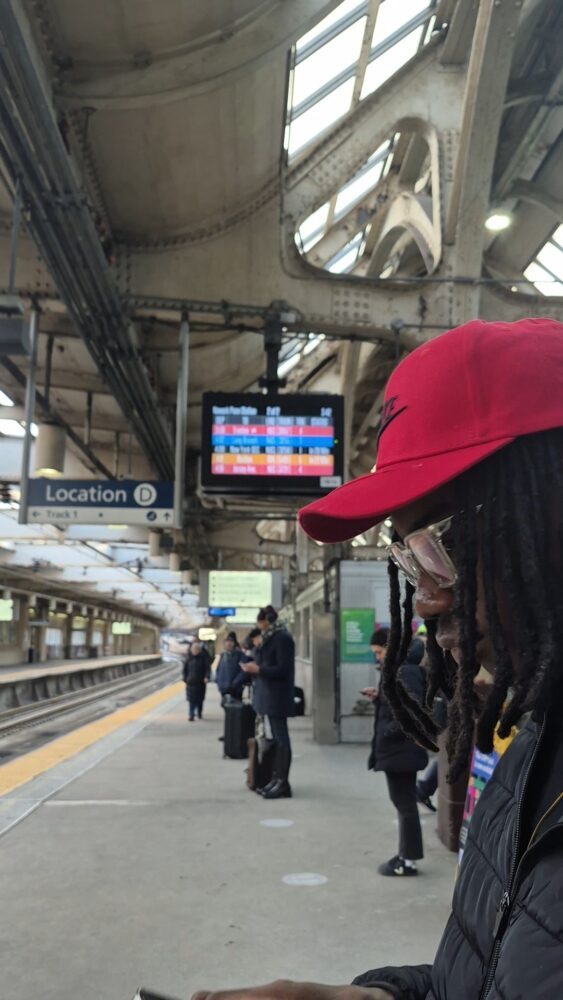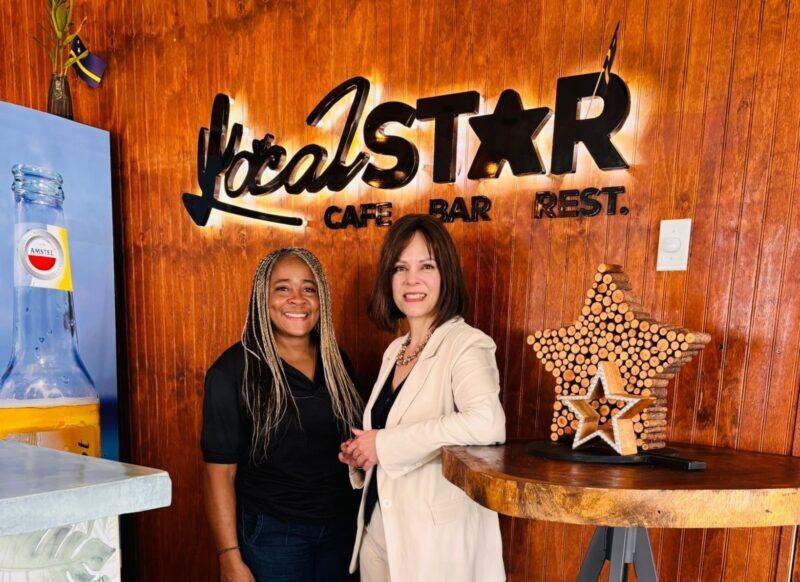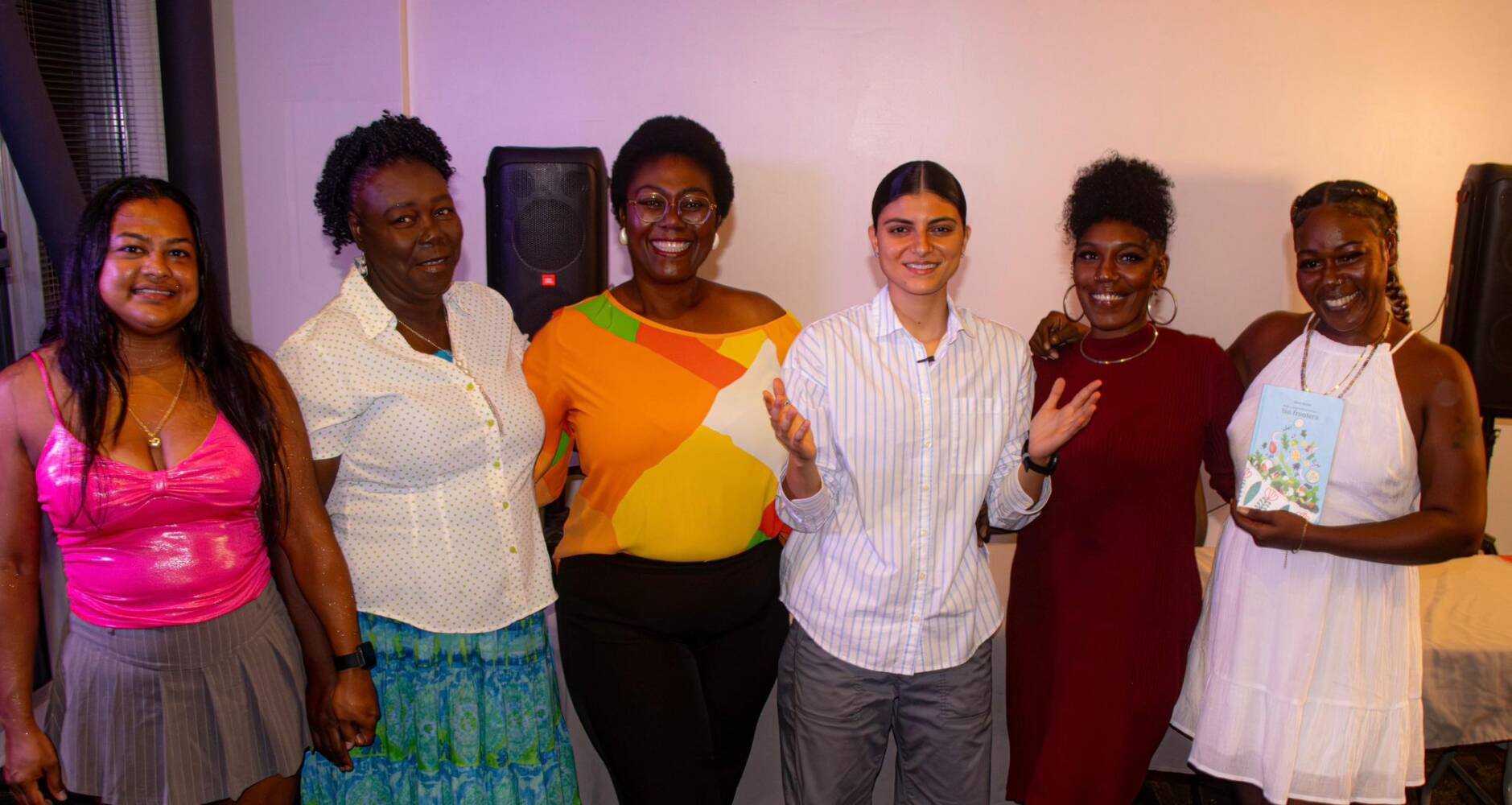Domestic violence, particularly partner violence, is a significant problem on the islands. In the European Netherlands, people from the Caribbean parts of the kingdom are also involved in these crimes more often than other minority groups. Criminologist and researcher Kristen Martina (33) has studied how gender and emotion regulation play a role in this issue. She explains why the ‘correctional tap’ is less innocent than people sometimes think.
Kristen Martina grew up in Buena Vista, one of Curaçao’s poorer neighborhoods where crime has risen over the years. She wondered why some people choose a different path than others, even when they’re from the same area. This question led her to study criminology. After earning two master’s degrees, she worked as a researcher at various institutes. Today, she’s an advisor for the probation service, specializing in domestic violence and child abuse within the Caribbean community. She is also an expert by experience, having survived partner stalking, a form of domestic violence.

Photo from Kristen Martina’s personal archive
Gender Roles
“I discovered a lot,” she begins. “First, gender plays a big role in partner violence, mainly because of the authority and aggression associated with ‘machismo.’ By gender roles, I mean the expectations about how men and women should behave – for example, that men should be tough and women should be sweet. Simply put, these different expectations and power imbalances lead to conflict, which in turn leads to violence.”
Emotion Regulation
Martina also discovered the importance of emotion regulation: the ability to recognize, understand, express, and control your emotions in a healthy way. This skill starts with how you’re raised. “In Curaçao, physical discipline is still part of parenting in some families,” Martina says. She found that physical discipline is a form of negative discipline that increases the risk of unhealthy emotional responses later in life. “This makes you more likely to become aggressive and use violence during a conflict. It’s not a direct, one-to-one consequence, but it does increase the risk,” she explains.
Martina saw this difficulty with handling emotions in the people she interviewed for her research. “Often, both men and women said that communication was very important in relationships, but they felt there wasn’t enough deeper conversation about feelings and truly vulnerable topics. The people I spoke with wanted this, but they felt they lacked the necessary skills.”
The practice of physical discipline being part of a child’s upbringing also applies to Bonaire, Sint Eustatius, and Saba (the BES islands). A recent study by Leiden University, the University of Curaçao, and UNICEF Netherlands found that hitting children is a culturally accepted part of discipline. According to the study, many surveyed residents of the BES islands said that parenting is often strict, with children given little room to express their opinions. “It’s not common for parents to listen to their children’s feelings or include them in decisions,” the researchers noted.
Double Standard
A notable finding in Martina’s research was that even though people always viewed violence negatively and supported parenting without physical discipline, some still felt physical discipline was justified under certain circumstances. “The distinction these people made was based on the level of violence and the child’s behavior,” she explains. “They considered mild forms of physical discipline, like a ‘correctional tap,’ as harmless, but saw more severe forms as abusive.”
Martina believes it’s important to define the term ‘correctional tap.’ “It’s a broad term, but it can be defined as a mild form of physical punishment, such as a light tap on the hand or butt, meant to correct or discipline a child. The idea is that the child will learn which behavior is acceptable through this tap. However, in the Netherlands, a ‘correctional tap’ has been illegal since 2007 and is considered child abuse.”
“Power and personal honor are important factors in physical discipline,” Martina says. “Violence can be seen as a way to demand respect and reinforce a certain hierarchy.” This also applies to how people parent. “Some parents think it’s okay to hit their child because ‘I have a reason, you must listen to your parents.'”
If you learn in childhood that violence is only okay to make someone listen or demand respect, you’re more likely to use that same reasoning as an adult. This double standard around violence makes it hard to know what is and isn’t acceptable. “This needs to be clearer,” Martina says. “Even the ‘correctional tap,’ no matter how mild, can be harmful.” She warns that regular physical discipline can also lead to fear, low self-confidence and self-esteem, behavioral issues, psychological problems, and aggression, which can last into adulthood.
Context of Poverty
Martina wants to stress that the ‘correctional tap’ and domestic violence are not found in all Caribbean households. However, there are systemic societal factors that make it more common, such as poverty, unemployment, housing problems, and inequality. “In Curaçao, thirty percent of the population lives below the poverty line. These circumstances create stress, which makes it harder to handle conflicts. You could say that financial stress and poverty increase the risk of domestic violence,” Martina explains.
In the Caribbean Netherlands, about one-third of the population also lives below the poverty line. Researchers, including those from Leiden University, agree that this is a breeding ground for domestic violence. This suggests that reducing poverty could have the positive side effect of reducing domestic violence in the Caribbean community.
Recommendations
The UNICEF study recommends using the strength of close family ties and strong community spirit on the islands to fight violence. “We need to look at how family members can be supported to use non-violent forms of communication, both between partners and between parents and their children,” the study advises. “Non-violent upbringing and family communication should become the norm, in line with international agreements.”
In addition, the researchers recommend investing in education about children’s rights, women’s rights, gender equality, and social justice. They suggest making support services more accessible, paying attention to confidentiality and continuity, both of which are under pressure in small communities with high migration.
Gender- and Culture-Sensitive Approach
In line with this advice, Martina advocates for a gender-sensitive approach: what are we teaching boys and what are we teaching girls? She also argues for a culture-sensitive approach that uses the positive aspects of the culture to help solve the problem. “Politeness, respect for parents and elders, and the ‘we-culture’ are examples of positive aspects of Caribbean upbringing that can be used to reduce violence.”
Martina also emphasizes the importance of learning positive communication and alternative parenting skills. “The more positively parents discipline their children – for example, by clearly explaining boundaries and rules and giving compliments as reinforcement – the less aggression children will learn and show later in life.” When asked what a parent can do instead of using a ‘correctional tap,’ Martina says the Caribbean community would benefit from more education and practical guidance.
Collaboration
“Providing education and guidance is a challenge on the islands, which have limited resources. It doesn’t compare to all the money the Netherlands has for research, education, and campaigns.” Therefore, Martina stresses the need for more structural collaboration between the European Netherlands and the islands, including addressing the systemic factors linked to domestic violence. However, Martina sees too that good steps are being taken. “For example, there are shelters for victims that are very good at dealing with the small scale of the islands, and cooperation among organizations is also improving,” she says. “The islands are very creative. So, certainly there is hope.”
For more information about domestic violence on Bonaire, click here.








